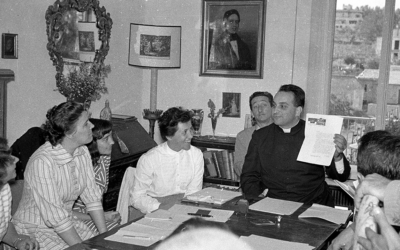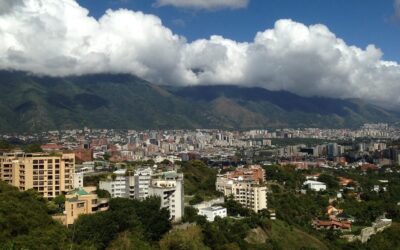 Never, as in these last few years, has the present economic system proven to be so fragile and unsustainable; the financial downturn of many large corporations and the energy crisis, all these point to the fact that the world economy, as conceived over the past two centuries, is gravely ill. At the same time, never as in these years has there been such a blossoming of new forms of social economics, such as equitable commerce, ethical financing, and critical consumption. Such phenomena give hope that a sustainable economy and development is possible. It is in this context that the Economy of Communion is imbedded. The international Convention held at Castelgandolfo (Rome) on Sept. 10-12 presented an evaluation of the results obtained after over a decade of experimentation on an international scale, and indicated new horizons to explore. The Convention offered the most significant experiences made in the sharing of profits by business enterprises with the poor; an update on the theses (130) exploring the Economy of Communion, presented in universities in different countries; the industrial parks which have emerged in Latin America, as well as one beginning in Italy. These, in fact, are some of the concrete accomplishments of the Economy of Communion project, launched in Brazil in 1991 as a response to the wide gap existing between the rich and the poor. One of the most important themes was “Looking at poverty and development through the perspective of communion”. The foundress of the Focolare herself, Chiara Lubich, spoke on the central theme: “New horizons for the Economy of Communion.” Another novelty which marked the Convention was the dialogue among proponents of the concrete realizations of social economics in their respective cultural contexts. For example, there was the experience of microcrediting inspired by Ghandi’s economic theory; innovative experiences which have their origins in Hindu and Jainist culture were also shared. The Dutch experience called “Economy of enough” proposed a simpler lifestyle. Experts in social economics on the international level, such as Michael Noughton and Stefano Zamagni, as well as other experts and entrepreneurs of different countries and professional backgrounds, contributed to the dialogue. The last session of the Convention was entitled: “Not only economy of communion but humanism of communion.” With the contribution of experts of fields such as ecology, politics and urban planning, the activities of the Economy of Communion were inserted in the larger framework of “a humanism of communion”.
Never, as in these last few years, has the present economic system proven to be so fragile and unsustainable; the financial downturn of many large corporations and the energy crisis, all these point to the fact that the world economy, as conceived over the past two centuries, is gravely ill. At the same time, never as in these years has there been such a blossoming of new forms of social economics, such as equitable commerce, ethical financing, and critical consumption. Such phenomena give hope that a sustainable economy and development is possible. It is in this context that the Economy of Communion is imbedded. The international Convention held at Castelgandolfo (Rome) on Sept. 10-12 presented an evaluation of the results obtained after over a decade of experimentation on an international scale, and indicated new horizons to explore. The Convention offered the most significant experiences made in the sharing of profits by business enterprises with the poor; an update on the theses (130) exploring the Economy of Communion, presented in universities in different countries; the industrial parks which have emerged in Latin America, as well as one beginning in Italy. These, in fact, are some of the concrete accomplishments of the Economy of Communion project, launched in Brazil in 1991 as a response to the wide gap existing between the rich and the poor. One of the most important themes was “Looking at poverty and development through the perspective of communion”. The foundress of the Focolare herself, Chiara Lubich, spoke on the central theme: “New horizons for the Economy of Communion.” Another novelty which marked the Convention was the dialogue among proponents of the concrete realizations of social economics in their respective cultural contexts. For example, there was the experience of microcrediting inspired by Ghandi’s economic theory; innovative experiences which have their origins in Hindu and Jainist culture were also shared. The Dutch experience called “Economy of enough” proposed a simpler lifestyle. Experts in social economics on the international level, such as Michael Noughton and Stefano Zamagni, as well as other experts and entrepreneurs of different countries and professional backgrounds, contributed to the dialogue. The last session of the Convention was entitled: “Not only economy of communion but humanism of communion.” With the contribution of experts of fields such as ecology, politics and urban planning, the activities of the Economy of Communion were inserted in the larger framework of “a humanism of communion”.




0 Comments